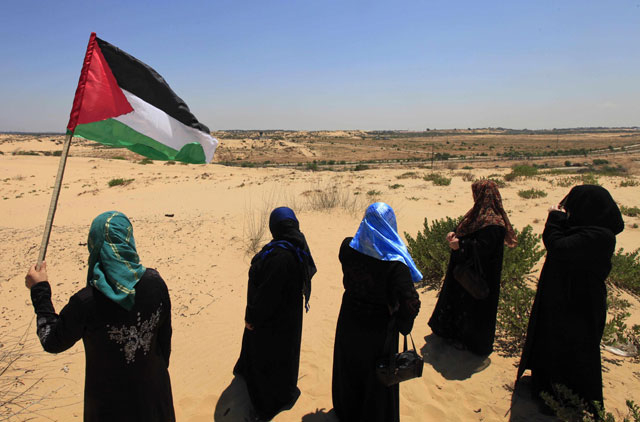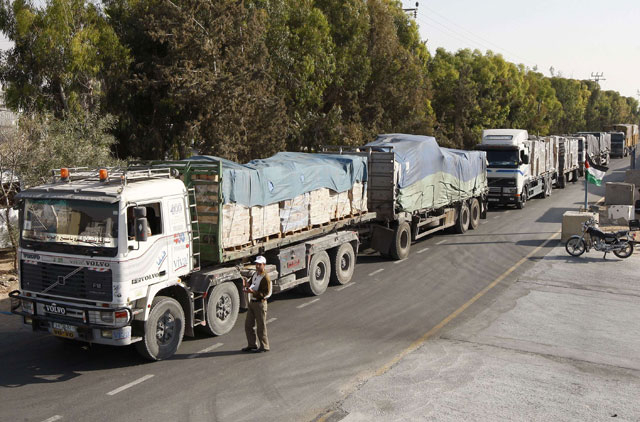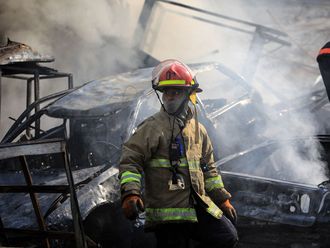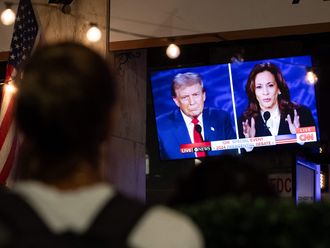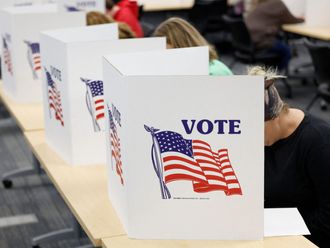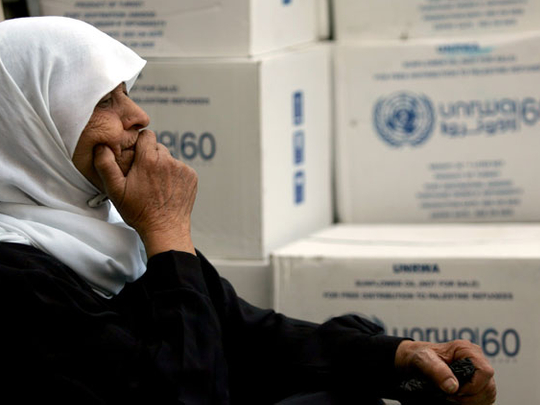
Occupied Jerusalem: Israel's security cabinet decided on Thursday to ease a Gaza land blockade following an international outcry over a deadly raid on an aid flotilla.
"It was agreed to liberalise the system by which civilian goods enter Gaza [and] expand the inflow of materials for civilian projects that are under international supervision," an official statement said, without specifying any product list.
The announcement appeared to indicate that Israel would allow international organisations, such as the United Nations, to import previously banned building materials, vital to reconstruction after the December 2008-January 2009 Gaza war.
The security cabinet, which began its discussions on Wednesday on easing the embargo, noted that "existing security procedures to prevent the inflow of weapons and war materiel" would continue.
The announcement made no mention of any lifting of Israel's sea blockade of the enclave, run by Hamas Islamists.
Israel faced mounting international calls to ease or lift its Gaza embargo following the killing by Israeli commandos of nine pro-Palestinian Turkish activists during the interception at sea of an an aid convoy on May 31.
Israeli leaders said the troops acted in self-defence after being swarmed by activists who attacked them, and that the blockade is necessary to prevent arms smuggling to Hamas.
Israel imposed the blockade soon after Hamas, which has rejected Western calls to recognise its right to exist, won a Palestinian legislative election in 2006. Restrictions were tightened after Hamas seized power in Gaza the following year.
Israel's security cabinet had met again on Thursday to discuss easing a four-year blockade of the Hamas-run Gaza Strip amid mounting pressure following its seizure of an aid fleet.
The previous meeting of 15 ministers ended after eight hours without any visible sign of progress.
Although officials refused to confirm the content of the talks, a government source had told AFP that the talks would be focused "on "matters related to Gaza."
If approved, the "Blair-Netanyahu understandings" would see Israel adopt a new approach to those goods which have been kept out of Gaza since the blockade was imposed in 2006, Israeli media reported.
Under the new proposal, thrashed out in three face-to-face sessions with Blair as well as multiple telephone calls, Israel would allow in everything except for items on a "blacklist," Israel's Haaretz daily said.
It would also allow the entry of more building materials for UN-sponsored construction projects.
And it would see Israel examine a proposal for stationing EU and Palestinian Authority inspectors at the border to inspect incoming goods, Haaretz said.
Currently thousands of products - some as banal as toilet paper and ginger - are listed by Israel as constituting a "security" risk and therefore are prevented from reaching Gaza.
The list also includes products such as construction materials, including metal pipes which Israel fears could be used for building rockets, and cement which could be used to build bunkers and tunnels.
On Wednesday Israel allowed eight trucks loaded with kitchen equipment to enter Gaza for the first time since 2006, following recent decisions to allow in snack foods and other household items that were previously banned.
Israeli media said the security cabinet was expected to approve the proposal, with Blair telling Haaretz it was "a very important step."
"It will allow us to keep weapons and weapon materials out of Gaza, but on the other hand to help the Palestinian population there," said Blair, who represents the Middle East peace Quartet of the United States, the United Nations, the European Union and Russia.
Blair told Haaretz the ultimate aim was to eradicate the need for smuggling through a network of tunnels running under Gaza's border with Egypt, through which thousands of goods are brought daily and sold at inflated prices.
However, army radio said Netanyahu was expected to stress the naval blockade of Gaza would remain in place - a measure he said was crucial for preventing Gaza from "turning into an Iranian port" through which arms would flow freely.
Israel has faced mounting calls to lift the blockade following a deadly May 31 raid on an aid flotilla trying to run the Gaza blockade, in which nine Turkish activists were shot dead by navy seals.
It has argued that the closures - imposed when an Israeli soldier was seized by Gaza militants in a deadly June 2006 raid and tightened a year later when Hamas took over - are needed to contain the Islamist movement.


